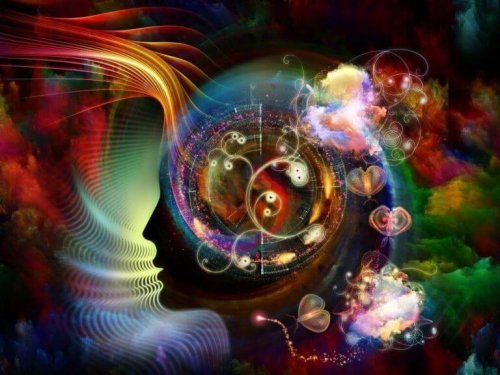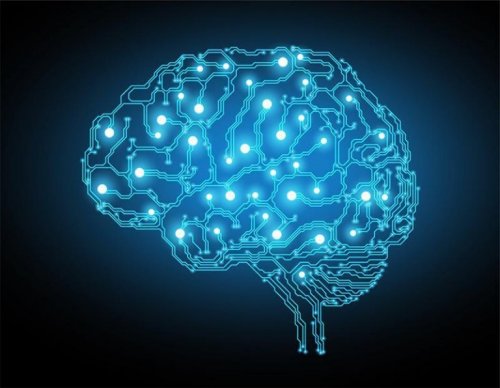Executive Functions: The Brain's Mental Abilities


Written and verified by the psychologist Valeria Sabater
Executive functions are complex cognitive processes. They’re mental activities we use to relate to our environment, work, create, prioritize some activities over others, control time, and even motivate ourselves. They’re automatic processes we execute daily without even realizing it.
At first glance, all of this might seem difficult to understand. We often hear that the brain works like a computer because it uses the same mechanisms. However, it’s safe to say that the brain is much more advanced. Executive functions are sophisticated activities through which we regulate our behavior and achieve our purposes. This is something that significantly exceeds any type of technology.
For example, let’ say we lie down in bed with a book in hand. While we look for the chapter where we left off, we think of the things we’ll be doing the next day. We set a purpose and decide what to postpone and what to prioritize. Immediately, we feel excited about the goals we’ve set for the next day. Then, we focus on reading the book while also remembering that we have to turn off the light and go to sleep in about an hour.
This simple example shows how our brain performs countless processes in a small fraction of time. In a few seconds, to be more specific. We pay attention to, prioritize, plan, supervise, and focus on determined objectives.

Executive functions and the frontal lobe
Human beings don’t come to this world with all their executive functions ready to be used. A curious fact is that many of these processes acquire their full functionality around the age of 25. The reason for this is that these cognitive capacities are located mostly in the prefrontal structures and those are the last ones to develop.
The first neurologist who spoke about these functions was Alexander Luria. Within the evolution of our species, they suppose a new aspect that’s linked to two specific milestones: the acquisition of language and the expansion of the frontal lobes. These events caused a whole revolution back then.
Social groups were more sophisticated and there were many advances that led us to where we are now. However, it’s important to note an essential aspect. Although the fact that these processes evolve as we mature is due to our genetic code, the full acquisition of executive functions depends on several elements.
“Our mission isn’t to “locate” a man’s superior psychological processes in limited areas of the cortex. It’s to find out, through a thorough analysis, the groups of concerted areas of the brain that are responsible for the execution of complex mental activities.”
-Alexander Luria-

When we’re two years old, the types of interaction we receive, as well as their quality, is key. Stressful experiences due to insecure attachments also difficult proper development.
- Elkhonon Goldberg really understands the executive brain. In his book, The Executive Brain, he explains how the executive functions reside in the frontal lobe. This is the area where our social interactions are located.
- Thus, if a child doesn’t establish meaningful bonds with their parents nor has a good education, it’s likely they won’t develop or use these cognitive processes effectively.
- On the other hand, we must note that disorders such as dyslexia, attention deficit disorder (with or without hyperactivity), dyscalculia, schizophrenia, or any brain damage can affect executive functions.
Now, the good news is that training these executive functions is possible. As long as we don’t have any serious neurological problems, we can develop our executive functions significantly.
What kinds of executive functions do we have?
Animals also have executive functions. However, they’re more rudimentary and elementary. They allow them to become aware of their needs, thus making their perceptive system guide their behavior and, lastly, making their physical and motor systems find a way to satisfy those needs.
However, humans don’t act only to satisfy their needs. Apart from our instincts, we’re characterized by our goals, obligations, social skills, and cultural knowledge. Our environment is so complex that we need a brain capable of adapting to that kaleidoscope of internal and external stimuli. This is where executive functions come into play.
They’re the following:
- Planning: Producing a sequence of ideas to reach a goal.
- Reasoning: Human beings compare, discard, analyze, and choose information. They discover.
- Controlling and managing time: Humans monitor the time necessary for each task. They also know when to invest more hours into something.
- Organizing and structuring information so that it has meaning and purpose.
- Inhibition: This is the ability to repress and control our instincts and impulses so that our behavior is ideal.

- Focusing and retaining information.
- Supervising and monitoring tasks, goals, and wishes.
- Working memory: Storing information to then access it at any given time is one of the most important executive functions.
- Flexibility: Ability to change our perspective and being open to learning from new ideas.
As a conclusion, the executive brain is, undoubtedly, the greatest gift that our evolution as a species has offered us. However, we can’t ignore the fact that executive functions lose functionality as we get older.
Thus, we should learn something new every day. We should always foster curiosity, critical thinking, and quality interaction with the people around us. All of these actions feed our brain and give it energy to keep these cognitive processes from deteriorating over time.
“Cognition and emotion are both critical parts of normal functioning. As neatly summarized by Dr. Robert Sylwester (whose interview can be found at the end of this chapter): “Emotion is the system that tells us how important something is. Attention focuses us on the important and away from the unimportant things. Cognition tells us what to do about it. Cognitive skills are whatever it takes to do those things.”
-Elkhonon Goldberg-
This text is provided for informational purposes only and does not replace consultation with a professional. If in doubt, consult your specialist.








